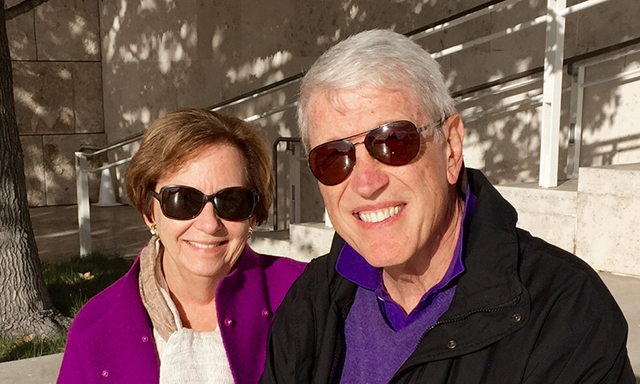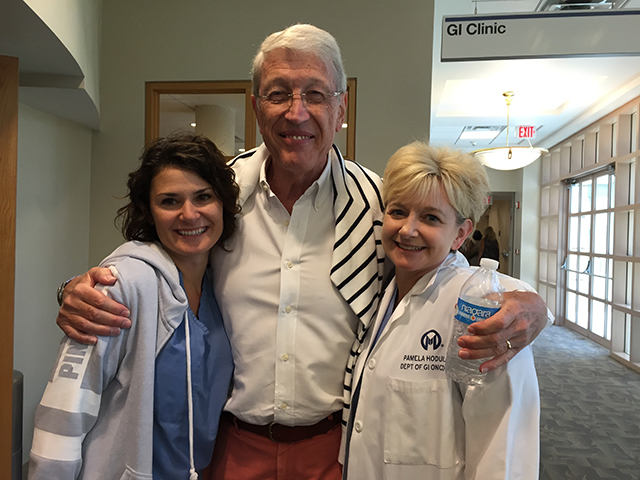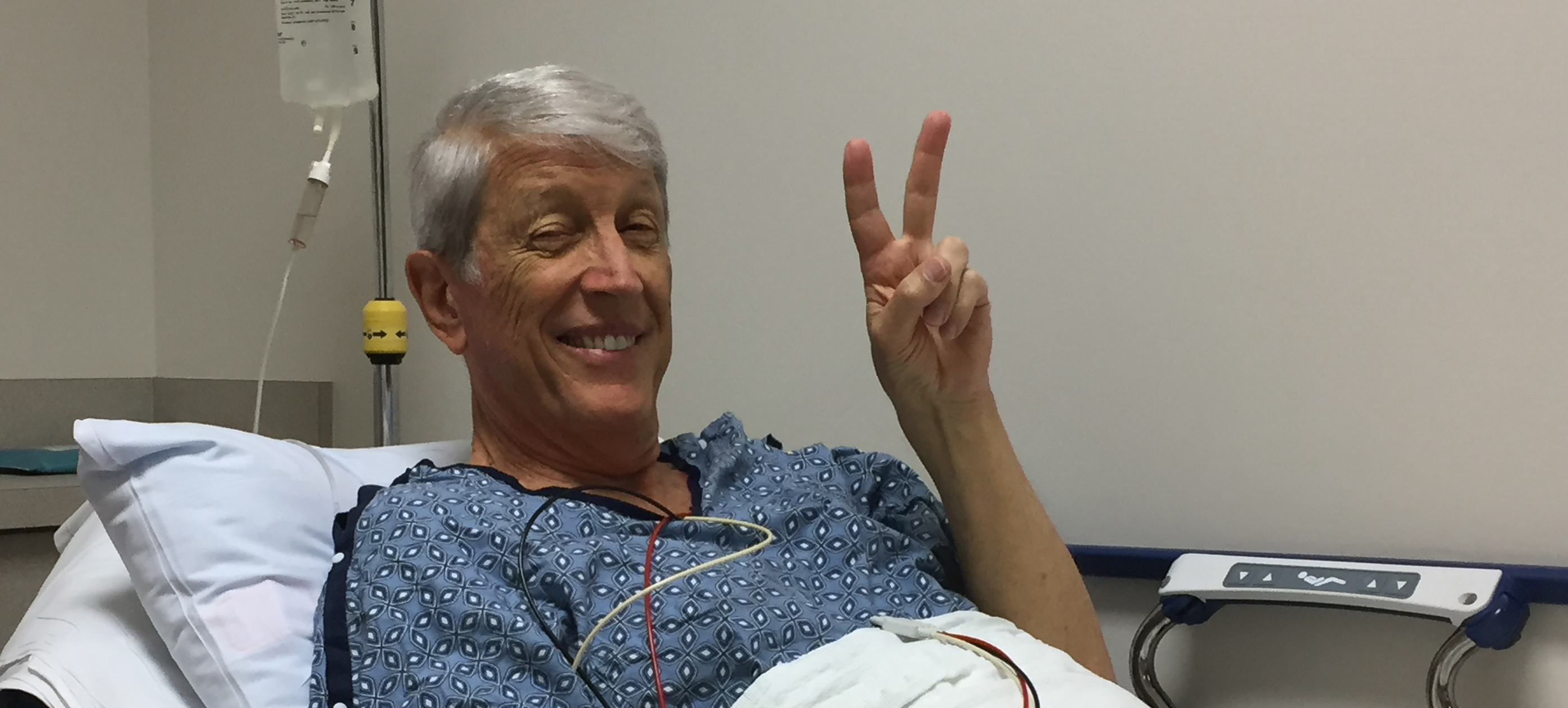Calamari, Moffitt and a Little Humor Saved My Life
In his wildest dreams, John Sherry never thought a plate of calamari would alert him to the fact that he had cancer.
At the end of September 2015 having just returned from a well-deserved vacation to Wyoming, he and his wife, Pamela were enjoying dinner at a favorite restaurant. “I was savoring every bite, but I wasn’t able to finish my meal because my stomach ached.” The next day his pain was much worse and by evening it was intolerable. So off they rushed to their local hospital’s emergency room.

John Sherry with his wife, Pamela.
After various tests, doctors determined his gallbladder was inflamed and he had pancreatitis, so he was admitted to the hospital. A few days later, he underwent surgery to remove his gallbladder and was on the road to recovery.
At a post-surgery visit, his GI doctor recommended he have an endoscopy due to an evident pinch in his bile duct. After the procedure, he received the chilling news: “Mr. Sherry you have pancreatic cancer.”
“It’s the last thing I would have ever thought” he said. “I’d never really been sick in my life. I was always active, exercised and ate right.” Sherry had no other apparent signs or symptoms until then.
He was diagnosed with stage 2 pancreatic cancer.
Stunned and not knowing where to turn for advice, Sherry phoned his goddaughter in California who happens to be an oncologist specializing in pancreatic cancer. “She got us all set up to meet with an oncologist at Moffitt and with surgeon Dr. Pamela Hodul.”
After another endoscopy, Sherry was scheduled for surgery to remove his spleen and the tail portion of his pancreas, known as a pancreas resection. This was followed by several rounds of chemotherapy and radiation.
Thankfully he had few side effects from his treatment. “I didn’t lose my hair; it didn’t make me sick and the worst thing it did was make me sleepy.” Since he and his wife live in Winter Park, Florida, they were able to drive to and from Tampa for his weekly treatments at Moffitt. Eventually he was told he only needed to be seen every six months and life returned to a ‘new normal.’
In 2017, Sherry and his wife had just returned from a cruise celebrating their fiftieth wedding anniversary. “Pam looked at me and said, ‘You’re yellow,’ and I said ‘Aw sweetie it must be the sunshine. Or maybe I ate too many bananas.’ Pam said ‘No, I think you’re jaundiced.’”
“And so there we were, back at Moffitt again,” said Sherry. His cancer had returned.
“My first thought was “What can we do? We’ve already tried everything.”
The first thing Dr. Hodul told him was, “I saved your life the first time. I’ll save your life a second time.”
And Sherry’s second thought? “Oh boy, here we go again.”

Sherry with Dr. Hodul (right) and her Physician Assistant, Melissa Adams.
His second surgery – called a Whipple – is also known as a pancreaticoduodenectomy. This procedure involves removing the head of the pancreas, part of the small intestine, and bile duct and then reconnecting the remaining organs to allow for the normal digestion of food.
Though complex and risky, the Whipple procedure can be lifesaving for patients with pancreatic cancer.
“I’m very fortunate to be alive,” said Sherry.
Sherry exudes his overwhelming positivity and sense of humor in conversation. He feels both have had a tremendous impact on his recovery. He recalled reading a joke sent by a friend and bursting out in laughter in a waiting room at Moffitt. “Laughter is infectious. The next thing I knew everyone in that room was laughing too,” he said. “For a moment in time no one was dwelling on what was happening inside of them, that they have cancer. It made them feel better.”
Although his cancer is gone, Sherry has experienced some related effects as a result of his treatments, including neuropathy in his feet and nerve damage in his right leg.
“But life is a challenge. It’s all what you do with it,” he said.
(By the way, ask him about his crazy sock collection!)



